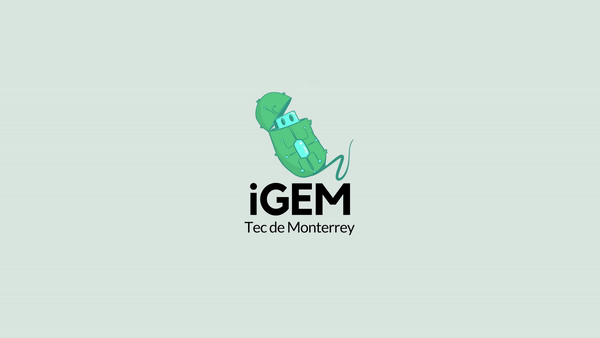Davidacevedo (Talk | contribs) |
Davidacevedo (Talk | contribs) |
||
| Line 252: | Line 252: | ||
<div id="fixed-subtitle">Tec-Monterrey</div> | <div id="fixed-subtitle">Tec-Monterrey</div> | ||
<div id="fixed-subtitle" style="font-family: DosisRegular; font-size: 30px; color: white;">Storing the world one base at a time</div> | <div id="fixed-subtitle" style="font-family: DosisRegular; font-size: 30px; color: white;">Storing the world one base at a time</div> | ||
| − | <div id="fixed-subtitle" style="font-family: Montserrat; z-index: 1; font-size: 40px">Scroll to know more | + | <div id="fixed-subtitle" style="font-family: Montserrat; z-index: 1; font-size: 40px"><br>Scroll to know more |
<br> | <br> | ||
<i class="fa fa-chevron-circle-down"></i></div> | <i class="fa fa-chevron-circle-down"></i></div> | ||
Revision as of 00:57, 18 October 2018

DNA has been called an excellent medium
for archiving data, interpreting the four base
pairs as a new language.
Through gene induction,
bacteria could store
external information in their DNA.
iGEM Tec-Monterrey 2018 attempts to create
a new system, which saves information regarding
its surroundings.

Information storage in DNA has
been demonstrated by recent efforts,
saving anything
from messages to animations.
E. coding
Scroll to know more
Tec-Monterrey
Storing the world one base at a time
Scroll to know more
DRAG AND DROP!


Pb

NO3

PO4

As
References
[1] Díez-Villaseñor, C., Guzmán, N. M., Almendros, C., García-Martínez, J. & Mojica, F. J. M. CRISPR-spacer integration reporter plasmids reveal distinct genuine acquisition specificities among CRISPR-Cas I-E variants of Escherichia coli. RNA Biol. (2013). doi:10.4161/rna.24023
[2] Farzadfard, F., & Lu, T. K. Genomically encoded analog memory with precise in vivo DNA writing in living cell populations. Science. (2014). doi: 10.1126/science.1256272
[3] Levy, A., Goren, M. G., Yosef, I., Auster, O., Manor, M., Amitai, G., Edgar, R., Qimron, U. & Sorek, R. CRISPR adaptation biases explain preference for acquisition of foreign DNA. Nature. (2015). doi:10.1038/nature14302
[4] Nuñez, J. K. Mechanism of CRISPR–Cas Immunological Memory. (2016). Doctoral dissertation, UC Berkeley.
[5] Nuñez, J. K., Kranzusch P, Noeske J, Wright A, Davies C, Doudna J. Cas1-Cas2 complex formation mediates spacer acquisition during CRISPR-Cas adaptive immunity. Nat. Struct. Mol. Biol. (2014). doi:10.1038/nsmb.2820
[6] Shipman, S. L., Nivala, J., Macklis, J. D., & Church, G. M. Molecular recordings by directed CRISPR spacer acquisition. Science.(2016). doi: 10.1126/science.aaf1175






